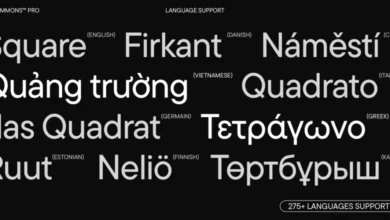Potential: The Power of Progressive Learning
In a world where information is readily available at our fingertips, the way we educate our children is evolving. Gone are the days when rote memorization was the cornerstone of learning. Instead, there is a growing recognition that education should empower students to think critically, delve into the depths of knowledge, and truly understand the world around them. This paradigm shift in education is encapsulated by the term “Progressive Learning.”
nnnnProgressive learning is not just a buzzword; it’s a dynamic and holistic approach to education that prioritizes critical thinking over mere regurgitation of facts. In traditional schooling, students often find themselves drowning in a sea of information, memorizing facts and figures without truly comprehending the underlying concepts. Imagine a student who can name all the parts of a cell but struggles to grasp how a cell functions. This is where progressive learning steps in to bridge the gap.
nnnnAt its core, progressive learning is all about fostering interconnectedness in curricula. It encourages students to explore ideas and subjects from various angles, helping them gain a deeper and more meaningful understanding of the topic at hand. Let’s delve into the key principles that define progressive learning and why it holds the promise of transforming education for the better.
nnnnCritical Thinking as the Cornerstone: Progressive learning places critical thinking at the forefront. Rather than providing students with ready-made answers, it challenges them to ask questions, analyze information, and develop their own conclusions. This not only equips them with essential life skills but also nurtures a genuine passion for learning.
nnnnContextual Learning: Instead of learning subjects in isolation, progressive education seeks to connect the dots. It encourages teachers to present topics in a broader context, showing students how different subjects intersect and relate to the real world. For instance, history and science can be explored together to understand the evolution of human society and technological advancements.
nnnnHands-On Experience: Progressive learning emphasizes hands-on experiences. It understands that true understanding often comes from doing. Whether it’s conducting experiments in a science lab, participating in group discussions, or engaging in projects, students are actively involved in their learning journey.
nnnnIndividualized Learning Paths
nnnnRecognizing that each student is unique, progressive learning tailors education to individual needs and interests. It allows for personalized learning paths, enabling students to explore subjects they are passionate about while providing necessary guidance and support.
nnnnHolistic Assessment: Traditional grading systems often fail to capture a student’s full potential. Progressive learning uses a holistic approach to assessment, considering not only test scores but also a student’s growth, creativity, and ability to apply knowledge in practical situations.
nnnnInclusivity and Diversity: Progressive learning fosters inclusivity and celebrates diversity. It values different perspectives and encourages open dialogue. This prepares students for a world where collaboration and understanding are key.
nnnnLifelong Learning
nnnnBeyond imparting knowledge, progressive education instills a love for lifelong learning. It equips students with the skills and curiosity to continue their educational journey long after they leave the classroom.
nnnnIn essence, is a shift from a one-size-fits-all model to an education that adapts and evolves with the needs of each student. It prepares them not only for exams but for life itself, where problem-solving, creativity, and adaptability are invaluable skills.
nnnnThe benefits of progressive learning extend far beyond the classroom. It nurtures independent thinkers who are not afraid to question the status quo, problem-solvers who approach challenges with confidence, and responsible citizens who understand the world’s complexities. As parents, educators, and policymakers, it is our collective responsibility to embrace and champion, ensuring that future generations are equipped with the tools they need to thrive in an ever-changing world.
nnnnConclusion
nnnnprogressive learning represents a transformative shift in education—a shift towards fostering critical thinkers, nurturing creativity, and cultivating a lifelong love for learning. It’s a beacon of hope for a brighter and more informed future, where knowledge is not just memorized but deeply understood and passionately pursued.
n


